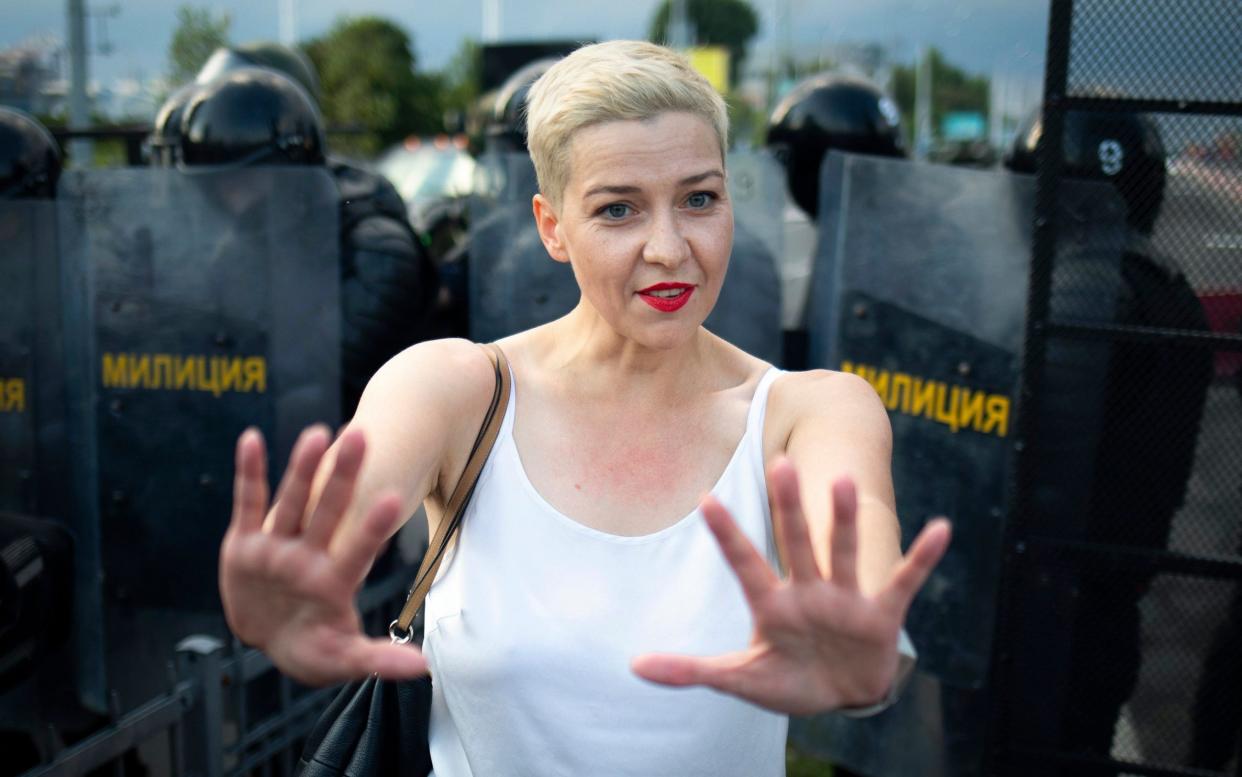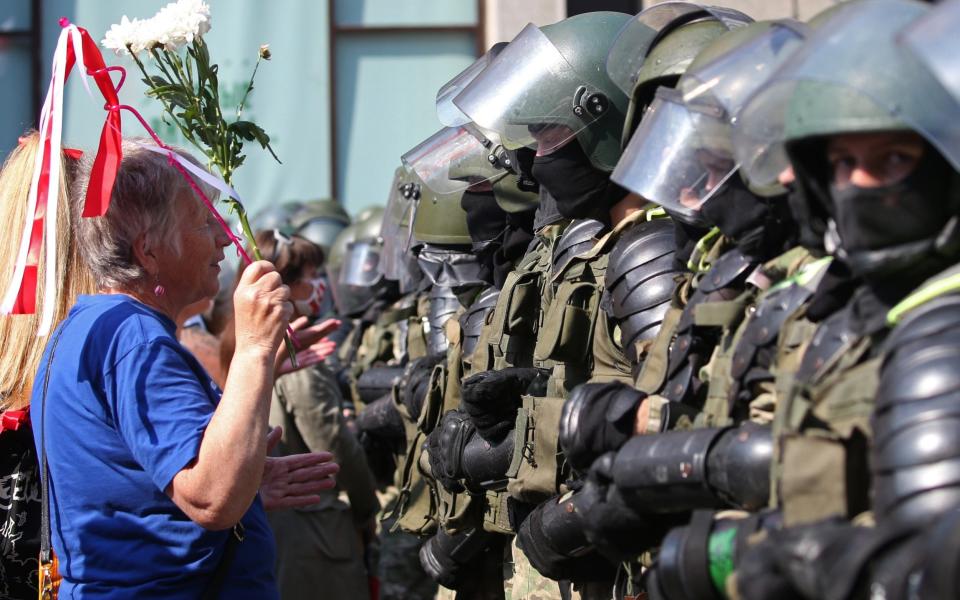Flautist turned pied piper for Belarusian revolt has 'no regrets' about choosing jail over exile

One afternoon in early September, Maria Kolesnikova was grabbed off the street by the Belarusian KGB and taken to the border to be forcibly expelled.
The professional musician-turned-protest leader, with her trademark red lipstick and cropped bleached hair, was put in a car with two of her associates who were told to drive to Ukraine and never come back.
While the two men sat in the front terrified, Ms Kolesnikova, who became a face of Belarusian protests last summer, took out her passport, ripped it up and threw the pieces in the faces of KGB officers standing nearby.
Moments later, she was out of the car and as dawn broke she walked across no-man’s land back into Belarus. She was immediately arrested and not seen in public since.
In her first interview with an English-language media outlet from jail, Ms Kolesnikova told the Telegraph earlier this week that she has “absolutely no regrets” about choosing a certain imprisonment over an exile.
“When so many people are in jail, I couldn’t just leave them, betray my convictions and flee against my own promises,” Ms Kolesnikova, whose pictures of showing a heart shape with her hands to riot police became an indelible symbol of the Belarusian protests, said in a written message.
“I physically could not resist and getting rid of the passport made my deportation impossible... it has foiled the plan of the intelligence services. It involved 5 different departments and 40 people in total.”

A musician with a successful career in Germany, Ms Kolesnikova, 38, emerged last summer as one of the leaders of the Belarusian uprising against Alexander Lukashenko, the country’s president of 26 years, whose dubious landslide win on Aug 9 triggered nationwide protests.
The government clamped down on the rallies with sadistic violence, leading to 10,000 arrests in three days and about 1,000 documented cases of torture custody.
The violence shook the nation to the core, fanning the flames of the protests even higher.
After Sviatlana Tsikhanouskaya - Mr Lukashenko’s main rival at the polls - was forced to leave Belarus the day after the elections, Ms Kolesnikova rejected the idea of an exile. Before her arrest she was threatened with murder if she did not comply.
Ms Kolesnikova was initially charged with calling for “actions aimed at undermining Belarusian national security” but the prosecutors earlier this month pumped up the indictment to “conspiracy to seize state power in an unconstitutional manner” and “establishing and leading an extremist organisation.” She would be sent to prison for decades, if convicted.
In the latest move to stifle the dissent, a Belarusian court has stripped Ms Kolesnikova’s attorney, Lyudmila Kazak, of her license, a ruling that came into effect on Thursday, leaving Ms Kolesnikova with no legal counsel.
In a message from prison, Ms Kolesnikova called on the international legal community to condemn the crackdown on the legal profession.

One of Ms Kolesnikova’s lawyers has been charged and is incarcerated in the same jail, another one is under house arrest and a third lawyer has been stripped of her license just like Ms Kazak.
“The regime is hoping that the country will soon run out of the lawyers,” Ms Kolesnikova said, describing the ruling as an attack on her personally.
She added that she looks at her ordeal as anything but a punishment.
“I’m totally fine, emotionally and psychologically. I treat everything that’s happening as a new difficult experience but not a tragedy,” she wrote from a jail in the centre of Minsk, adding that the only thing that bothers her is cigarette smoke in her cell.
Ms Kolesnikova boasted of a new routine - “daily exercises in the crispy, fresh air in the morning” - as something that makes her “always full of energy and optimism.”
She has recently received parcels with books in English and German which gets her to “always learn something new.”
President Lukashenko, who has become an international pariah for leading the sadistic crackdown on peaceful protesters, met with Vladimir Putin, the Russian president, on Monday amid rumours that his embattled regime is seeking another $3 billion loan from Moscow. The Kremlin did not refute or deny the reports.
Ms Kolesnikova is now one of over 250 people who are behind bars in Belarus for their political views, according to the human rights group Viasna. Since the onset of protests, authorities have pressed charges against 2,300 people who face persecution for their opposition to the government.
As the protests fizzled out in the winter, the Lukashenko regime in recent weeks launched a new offensive on the opposition movement, worn out by never-ending arrests and harassment, handing out jail terms to defendants as different as two journalists and a 16-year-old student.

